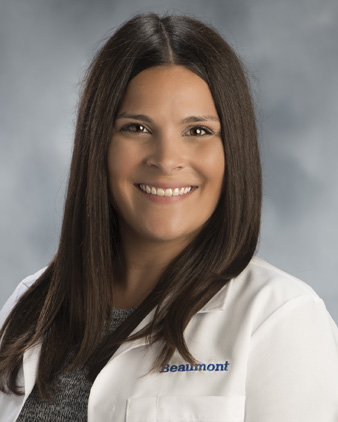Tuesday, November 19, 2019

On the surface, dieting apps that appeal to and/or include options for the 18 and younger crowd might sound like a great idea.
What’s not to like about encouraging healthy food choices, promoting appropriate portion size, providing opportunities for calorie and fitness tracking and overall wellness support?
According to Beaumont Health adolescent and eating disorder specialist Dr. Jaime Taylor, allowing young people to become immersed in all-of-the-above - alone and online - is anything but healthy.
 “In today’s world, social media plays a huge role
in body dissatisfaction,” said Dr. Taylor, program director of Beaumont’s Hough Center for Adolescent Health.
“In today’s world, social media plays a huge role
in body dissatisfaction,” said Dr. Taylor, program director of Beaumont’s Hough Center for Adolescent Health.
While this is true for people of all ages, Dr. Taylor said, adolescents have greater difficulty incorporating external messaging into a healthy outlook because they often see the world in “black and white.” This means recommendations about moderation and variety are often taken to mean ‘eliminate intake’ as opposed to ‘balance intake.’
Fitness apps can further complicate the process, Dr. Taylor said, by labeling foods as “good” or “bad,” “healthy” or “unhealthy.” All foods can be part of a balanced and healthy diet.
The problem is two-fold: media messaging that promotes a narrow standard for physical beauty and perfection advanced by so-called social media “influencers”; combined with the direct and around-the-clock access that young people have to digital tracking tools such as Fitbits and Apple watches.
Mix in the growing proliferation of “fitness” apps geared toward teens and it’s a potential recipe for disaster.
“I can’t tell you how many times a young person or parent comes into my clinic and explains: ‘it all started with a desire to be healthy’,” Dr. Taylor said. “This is an admirable thing, to strive for health, but we must be careful in assessing what this truly means. In our culture unfortunately, the concept of ‘healthy’ gets intertwined with ‘skinny.’ However, you cannot tell from a person’s shape or size whether they are healthy.”
Extreme changes in diet, Dr. Taylor continued, including increased food, restriction can lead to intrusive thoughts which may be followed by disordered thinking and eating.
And because health is not a one-size-fits-all calculation, the average adolescent does not have a clear understanding of what healthy looks like for them, Dr. Taylor stressed.
“A lot goes into determining the right amount of energy for an individual and information found online is often inaccurate,” Dr. Taylor said.
“It’s important to recognize: what starts with good intentions can rapidly progress to disordered thinking and eating and this puts people, both young and older, at risk for developing an eating disorder.”
Dr. Taylor offers the following tips for parents:
- Talk about things outside of physical appearance and body shape and size. “We should not talk about bodies: ours or anyone else’s. Internal qualities should be the focus of our conversations.”
- Teach children how to evaluate media messaging. “It’s important for young people to learn how to evaluate information presented in the media and make educated decisions about what is best for them. This is true about food choices but also includes choices made regarding all aspects of life.”
- Pay attention to the choices young people are making about food and activity. Notice if they are losing or gaining weight rapidly. If you have any concerns, talk to an expert, such as a primary care physician, sooner rather than later.
